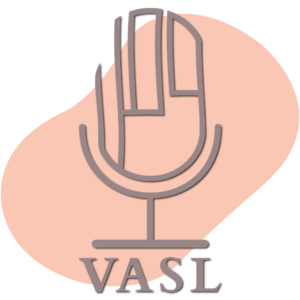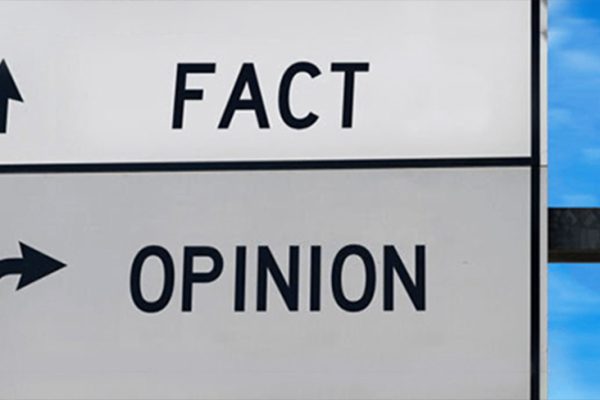Hello, there. I hope your July has started well. I am waiting patiently for my little one to arrive – our due date is just around the corner, so I am really excited. Today I want to summarise the discussion that we had in our first ever podcast that was on facts and opinions – you can check that out here. But let’s first go to the weekly inventory check.
Weekly Inventory Check:
I was talking to my Dutch teacher this week, and we were discussing how we should write everything down and maintain a planner – and basically how that is important to me. I expressed my observation that many individuals tend to overlook the value of a planner or documenting things because they often claim to lack the time. Ironically, my teacher agreed, stating that he truly, genuinely lacked the time. He proceeded to recount his daily routine of preparing breakfast for his children, taking them to school, and managing his workload upon returning home.
Acknowledging his viewpoint, I concurred that he might genuinely be pressed for time if he believed so. But the funny part is, it only takes five minutes to engage in these planning activities. In a mere five minutes, one can outline their goals, establish a sense of direction, and become more informed for making decisions. Thus, all it requires is dedicating five minutes of one’s time—a simple task to accomplish. This concept aligns with the concept of the weekly inventory check.
Facts and Opinions
Facts represent objective and verifiable information that is grounded in evidence and can be subjected to observation, measurement, and proof. They transcend personal beliefs and perspectives, serving as independent entities. Conversely, opinions reflect subjective viewpoints influenced by individual preferences, beliefs, experiences, and interpretations of factual information. Individuals often seek out supportive facts or evidence to bolster their opinions. Nevertheless, it is crucial to acknowledge that even when backed by factual information, opinions remain subjective interpretations or judgments derived from those facts. The comprehension of the differentiation between facts and opinions holds immense significance in fostering critical thinking, facilitating decision-making, and effectively evaluating information across diverse contexts. It is worth noting that the realm of facts continues to expand, as exemplified by the discovery of gravity, which had always existed but was brought to light through the fortuitous event of an apple’s descent.
The distinction between facts and opinions is clear in natural sciences, where facts are observable and measurable. However, in social sciences like economics and psychology, the empirical method becomes more probabilistic rather than definitive. Social sciences involve ongoing exploration and the discovery of new information, leading to multiple perspectives and sometimes conflicting facts. In education systems and media, critical thinking may not be encouraged, leading to beliefs being held strongly even in the face of new evidence. In political contexts, leaders’ words are often taken as truth, and challenging them is seen as disrespectful. Social dynamics, group loyalty, and echo chambers further contribute to the difficulty of challenging beliefs. Many people recognize misinformation but may lack the energy or platform to address it. Empowering individuals with fact-checking resources and promoting critical thinking can help navigate the complexities of beliefs and opinions.
Facts are empirical findings that can be observed, measured, and proven within the scientific realm. Opinions, conversely, are subjective viewpoints that often seek support from factual evidence. It is paramount to comprehend the disparity between facts and opinions. Unfortunately, instances arise where misinformation is misconstrued as factual information and disseminated without accountability. Individuals, driven by cognitive inertia, may neglect fact-checking, relying on the credibility of the source instead. In the past, access to news and information was restricted to a select few, but with the advent of numerous news channels and social media platforms, information is now abundant. Paradoxically, misinformation tends to garner more attention on social media platforms, capturing the curiosity of users through enticing headlines. News organizations, driven by financial incentives, may prioritize sensationalism over veracity, disregarding the potential consequences of disseminating misinformation. Artificial Intelligence (AI) technology, while providing unprecedented convenience and accessibility, also presents challenges. It can be exploited to generate fabricated information, altering audio or video content to falsely incriminate individuals.
It is imperative to adopt measures to combat misinformation and hold responsible the individuals and entities behind its dissemination. As the government represents the collective will of the people, individuals bear an inherent responsibility to uphold the truth. Social media platforms and news organizations must also be accountable for the information they provide, committing to refraining from circulating false information. Additionally, individuals should proactively engage in fact-checking by utilizing reputable online fact-checking websites like Snopes, Politifact, etc. It is crucial to verify the primary sources of information before accepting its validity. Furthermore, adopting a balanced approach, one should explore different perspectives to enhance analytical skills. It is essential to initiate change within oneself before advocating for change in others.
Want More?
This article shows that users mostly tend to select and share content related to a specific narrative and ignore the rest. In particular, social homogeneity is the primary driver of content diffusion, and one frequent result is the formation of homogeneous, polarized clusters.
This article is reviewing the perceived problem of misinformation and found that many disciplines agree that the issue is not novel, but that modern technology generates unprecedented quantities of misinformation.
I mentioned about a few fact-checking websites but does a practice of fac-check really change what people think? Read here.
Read of the Week
The book, Beyond Fake News: Finding the Truth in a World of Misinformation, by Justin P. McBrayer distinguishes itself by drawing much-needed attention to the demand side of fake news. Media scholars tend to treat users as hapless victims of media messages who accept fake news as the “truth.” But McBrayer argues that the public’s desire for truth is overestimated.
Thoughts to Leave You with
I understand that it is ideally the responsibility of institutions to provide accurate fact-checking. We should not solely rely on independent websites, as the media should be accountable for presenting us with reliable information. After all, one would assume that their purpose is to earn money by delivering the truth. However, the reality is that they generate revenue by capturing our attention, and negative news, fake news, and sensational stories tend to garner more attention than the truth, as the truth is often boring and not as entertaining.
Therefore, until we establish institutions that are willing to fulfill their role correctly, I urge you to take on the responsibility of seeking the truth for yourself. While it may be challenging, it represents a step in the right direction— a proactive approach towards obtaining accurate information.


